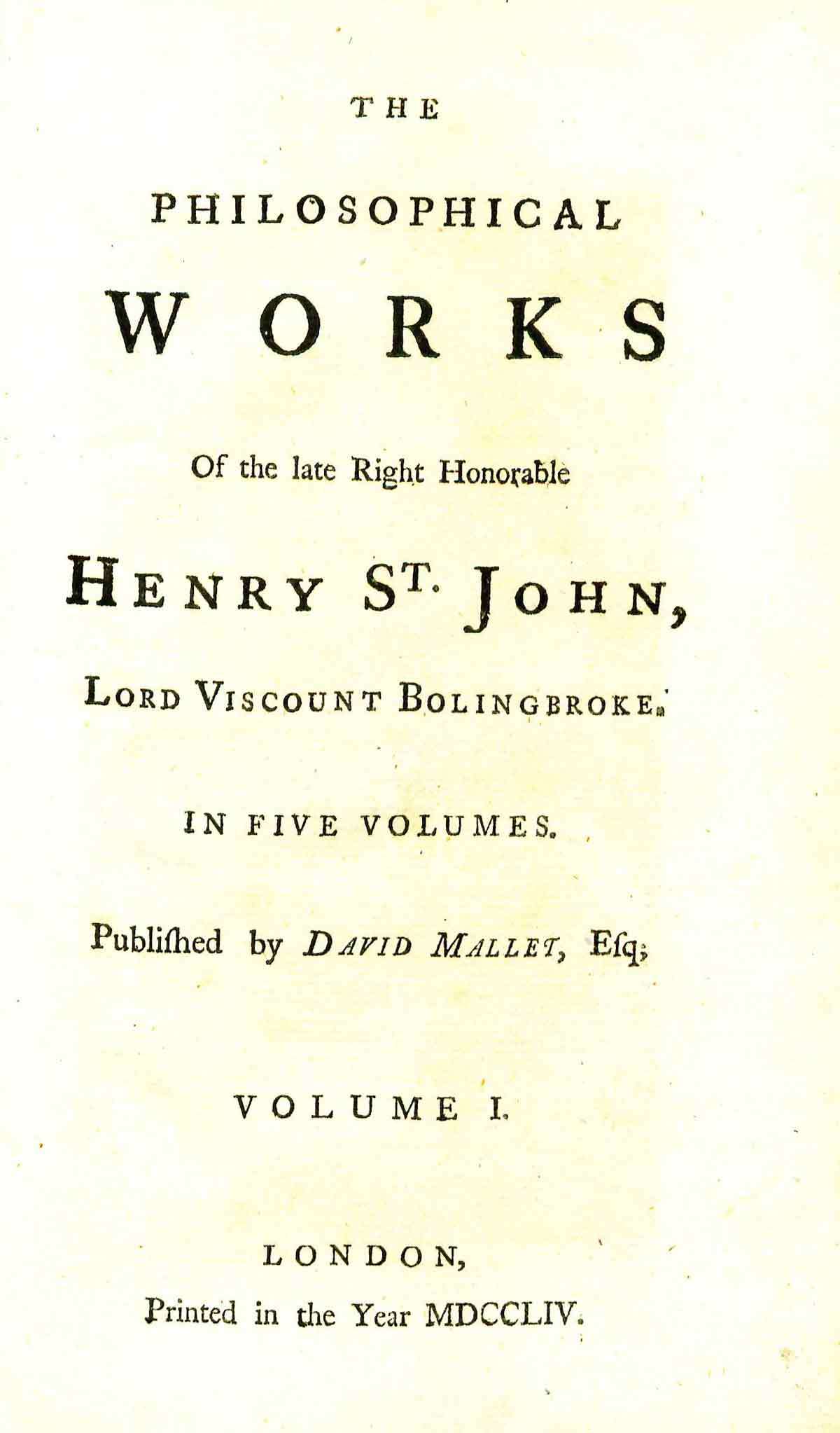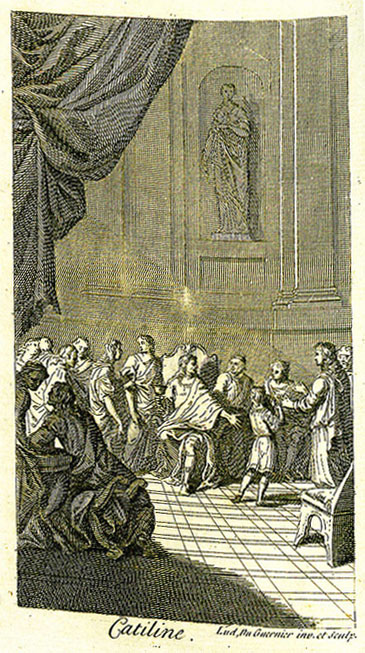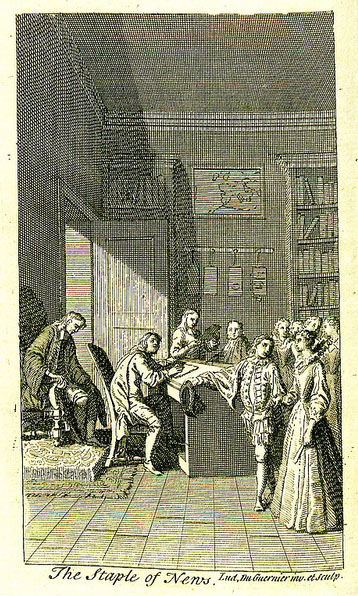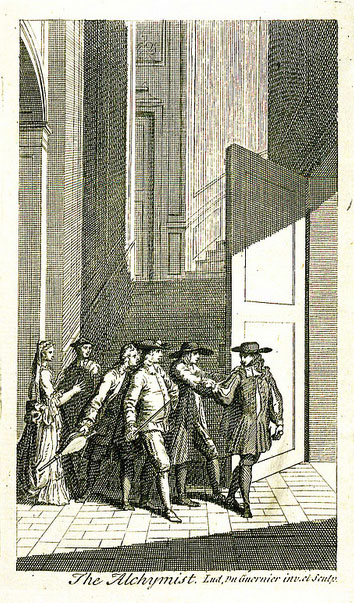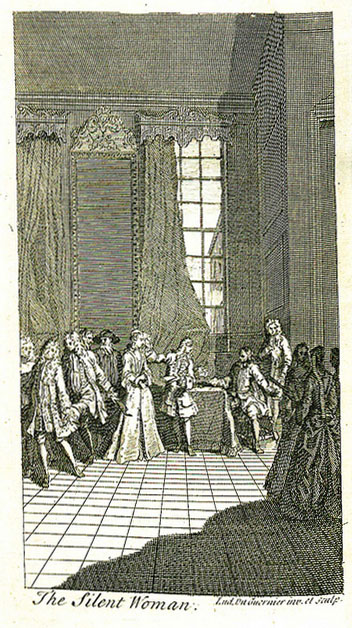The Philosophical Works of the Late Right Honorable Henry St. John, Lord Viscount Bolingbroke
by Henry St John, First Viscount Bolingbroke
| The Philosophical Works of the Late Right Honorable Henry St. John, Lord Viscount Bolingbroke | |
|
Title page from The Philosophical Works of the Late Right Honorable Henry St. John, Lord Viscount Bolingbroke, George Wythe Collection, Wolf Law Library, College of William & Mary. | |
| Author | Henry St. John, First Viscount Bolingbroke |
| Published | London: Published by David Mallet, Esq. |
| Date | 1754 |
| Language | English |
| Volumes | 5 volume set |
| Location | Shelf A-4 |
Henry St. John, First Viscount Bolingbroke (1678-1751), was a prominent member of the Tory party in the British Parliament from 1701 until the 1714 shift of power to the Whigs.[1] After joining the failed 1715 Jacobite Rebellion as secretary of state to James Stuart, he was exiled to France until his pardon in 1723.[2] During his exile, he encountered the ideas of the French Enlightenment and devoted much time to philosophical study, struggling to develop a system of morality grounded in natural law and reason and tending towards a deist worldview.[3] His Philosophical Works grew out of this period and his subsequent study, and was first published three years after his death.[4]
Bolingbroke’s works had some influence in the American colonial period: John Adams claimed to have read through his works five times, and Bolingbroke influenced Alexander Pope and Jonathan Swift, who were widely read in the colonies.[5] Additionally, Bolingbroke’s Philosophical Works was a favorite of Jefferson, who copied approximately 10,000 words from the work into his Literary Commonplace Book, complied in the 1760s.[6]
Evidence for Inclusion in Wythe's Library
Included in the Brown Bibliography[7] based on notes in Thomas Jefferson's commonplace book.[8] Jefferson studied Bolingbroke's Works during the time he would have been Wythe's legal apprentice. It is unknown whether the set belonged to Wythe, Jefferson, or someone else. Brown lists the 1754 edition based on Jefferson's copy at the Library of Congress[9] and this is the edition included in the Wolf Law Library's George Wythe Collection.
Description of the Wolf Law Library's copy
Bound in full calf. Purchased from Alex Alec-Smith.
Images of the library's copy of this book are available on Flickr. View the record for this book in William & Mary's online catalog.
See also
- A Dissertation Upon Parties: in Several Letters to Caleb D'Anvers, Esq.
- George Wythe Room
- A Letter to Sir William Windham ; II. Some Reflections on the Present State of the Nation ; III. A Letter to Mr. Pope
- Remarks on the History of England: From the Minutes of Humphry Oldcastle
- Wythe's Library
References
- ↑ H. T. Dickinson,"St John, Henry, styled first Viscount Bolingbroke (1678–1751)," in Oxford Dictionary of National Biography (Oxford University Press, 2004-), accessed September 25, 2013.
- ↑ Ibid.
- ↑ Ibid.
- ↑ Ibid.
- ↑ Robert M. Weir, "Review: Bolingbroke and His Circle, The Politics of Nostalgia in the Age of Walpole by Isaac Kramnick," South Carolina Historical Magazine 70, no. 4 (1969): 270.
- ↑ "Religion in Eighteenth-Century America - Religion and the Founding of the American Republic | Exhibitions - Library of Congress" Library of Congress, accessed September 25, 2013 http://www.loc.gov/exhibits/religion/rel02.html.
- ↑ Bennie Brown, "The Library of George Wythe of Williamsburg and Richmond," (unpublished manuscript, May, 2012) Microsoft Word file. Earlier edition available at: https://digitalarchive.wm.edu/handle/10288/13433.
- ↑ Thomas Jefferson's Literary Commonplace Book (Princeton, N.J.: Princeton University Press, 1989).
- ↑ E. Millicent Sowerby, Catalogue of the Library of Thomas Jefferson (Washington, D.C.: The Library of Congress, 1952-1959), 2:16 [no.1265]
External Links
Read volume two of this book in Google Books.
